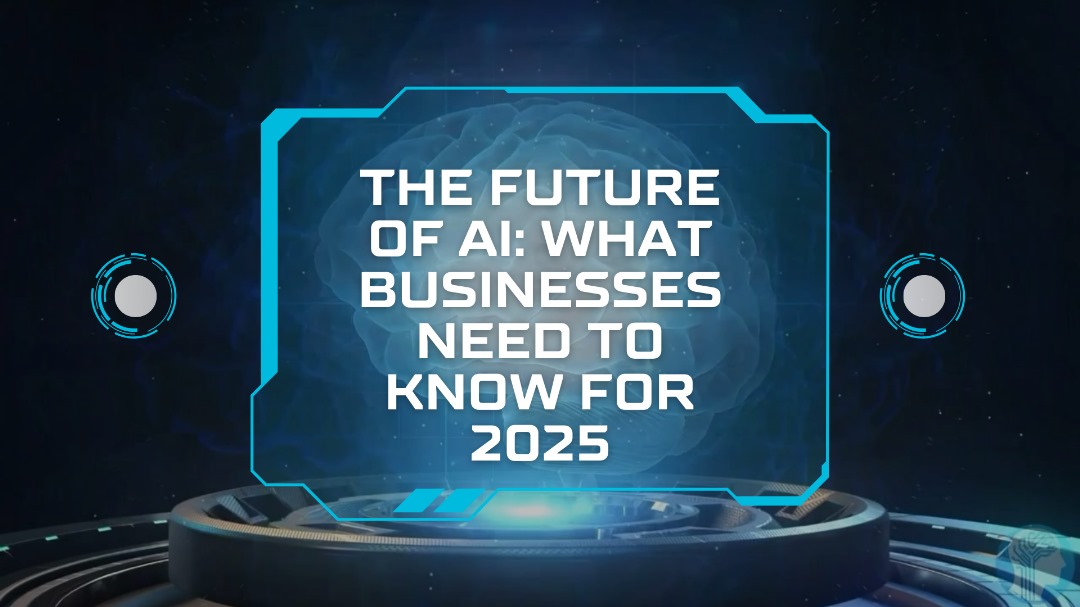Artificial Intelligence (AI) is the driving force behind the transformation of industries worldwide. From cloud computing and digital advertising to data center infrastructure and technology consulting, AI is shaking up how we work. Giants like Microsoft, Google, and Meta are at the forefront, reaping significant rewards. Microsoft, for instance, predicts its AI initiatives will soon generate over $10 billion annually. Meanwhile, Google Cloud’s AI-driven solutions are growing faster than ever, and Meta credits AI for taking its advertising strategies to new heights.
Picture a world where businesses can operate smarter, faster, and more creatively than ever before. Sounds futuristic? Well, the future is already here. With AI advancing rapidly, it’s more than just a tool—it’s becoming a business necessity. By 2025, enterprises that neglect AI might find themselves outpaced by competitors who’ve embraced its transformative power. Let’s dive into the key AI trends and explore how they’re reshaping the business landscape.
Key AI Trends for 2025
- Generative AI: Unlocking Creativity at Scale
Imagine AI as your creative collaborator. Generative AI isn’t just about automation anymore, it’s about creating. By 2025, businesses will harness generative AI to design marketing content, craft unique products, and even brainstorm new ideas. Think of it as having a digital partner that brings a spark of innovation to the table. The International Data Corporation (IDC) estimates that generative AI could rake in over $150 billion by 2027, underscoring its rising demand. It’s fascinating to imagine the creative possibilities AI will unlock in the near future.
- AI in Cybersecurity: Guarding the Digital Gates
In today’s world, cyberattacks are as common as shopping online. The threats are evolving, but here’s the good news: so is AI. By 2025, AI will take center stage in cybersecurity, monitoring networks in real time and predicting potential breaches before they happen. Think of it as a digital watchdog—always alert, always learning, and always protecting. This proactive approach will be a game-changer for businesses aiming to safeguard sensitive data and maintain customer trust.
- AI-Driven Personalization: Tailoring the Customer Experience
Have you ever marveled at how your favorite streaming service seems to know exactly what you want to watch next? That’s AI-driven personalization in action. By 2025, this technology will become the gold standard for businesses aiming to connect with their customers on a deeper level. AI will analyze behaviors, predict needs, and deliver personalized experiences in real time—whether it’s suggesting products, crafting tailored ads, or anticipating customer preferences. It’s not just about selling; it’s about creating meaningful interactions that build loyalty.
- AI Ethics and Regulation: Building Trust in Intelligent Systems
As AI integrates deeper into our lives, questions around ethics and fairness are becoming louder. By 2025, stricter regulations will demand businesses to be more transparent, reliable, and ethical in their AI deployments. Companies that ignore these concerns risk not only penalties but also the trust of their customers. Embracing responsible AI practices isn’t just the right thing to do, it’s essential for long-term success.
Industry-Specific Insights
- Healthcare
The primary focus of the healthcare industry as a whole has been gathering precise and pertinent data about patients and those who enter treatment. Imagine a world where your doctor works alongside an AI-powered assistant, diagnosing diseases with precision and crafting personalized treatment plans. In healthcare, AI is poised to revolutionize everything from diagnostics to robotic surgeries. By 2025, AI will analyze vast amounts of medical data to predict illnesses before symptoms appear, offering patients a lifeline to earlier interventions and better outcomes.
- Finance
In finance, AI will be crucial in fraud prevention and risk management. Automated financial advisors will provide tailored investment strategies, while machine learning models will assess creditworthiness faster and more accurately than traditional methods. The competition in this sector will be fierce, as companies leveraging AI gain a significant edge over those sticking to outdated approaches.
- Marketing
Picture this: Instead of spending thousands on an ad campaign and hoping it resonates; you use AI to predict its effectiveness before launch. By 2025, AI will revolutionize marketing by creating campaigns that are data-driven and hyper-targeted. From sentiment analysis to competitive research, AI tools will make marketing smarter, more efficient, and more impactful than ever.
- Manufacturing
In manufacturing, AI will be the difference between running smoothly and grinding to a halt. By predicting equipment failures before they occur and optimizing supply chains, AI will ensure factories operate like well-oiled machines. By 2025, businesses will rely on AI to minimize downtime, reduce waste, and deliver products with unmatched efficiency.
Conclusion
AI is no longer a futuristic concept, it’s a present-day powerhouse that’s reshaping industries and redefining possibilities. By 2025, its influence will touch every corner of the business world, from improving customer experiences to protecting sensitive data and driving innovation. But here’s the catch: success in this AI-driven future won’t come to those who wait. It will come to those who adapt, learn, and embrace the change.
If you found this article insightful, join the conversation by sharing your thoughts in the comments below and let’s discuss opportunities AI can create and the challenges for us.








